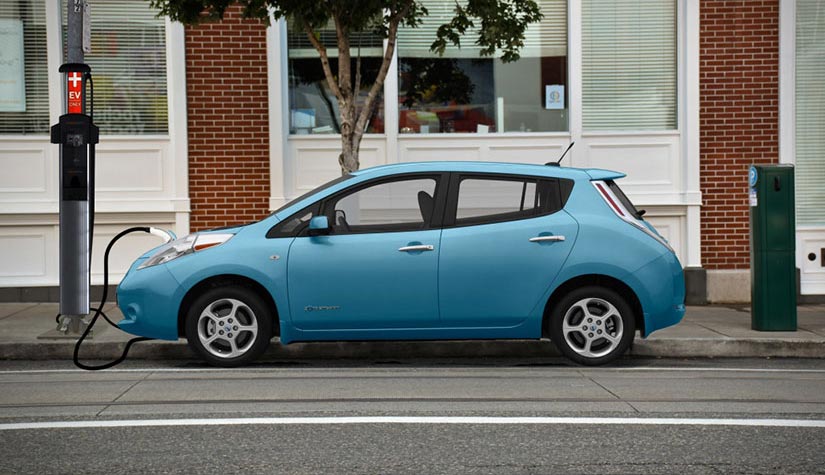Kansas City Engages Community To Expand Electric Vehicle Infrastructure
Project Focuses on Equitable Distribution of New Streetlight EV Charger Locations

Researchers are working to expand access to electric vehicles (EVs) by building more charging stations in neighborhoods that otherwise might be overlooked.
Scientists from the National Renewable Energy Laboratory (NREL) are partnering with the Metropolitan Energy Center (MEC) and other organizations to increase the electric vehicle charging infrastructure in Kansas City, Missouri, by installing charging units on existing streetlights. NREL and MEC are working closely with nonprofit organizations, academia, local government, and community members to ensure the station location selection focuses on providing equitable access to EV charging.
"There is a real risk that electric vehicle adoption will be concentrated to limited geographic and demographic markets, minimizing the benefits to underserved populations that are already more susceptible to lower air quality and higher vehicle ownership burdens," said Erin Nobler, a project manager with NREL and one of the lead researchers on this project.
The streetlight charging stations will be available for anyone to use. They also will be located in residential areas to support overnight charging.
Most electric vehicle charging happens at home. But people who live in apartment buildings or other multifamily housing do not always have garages or other places to plug in an electric vehicle.
"Folks can park their car curbside as they normally would, go into their apartment, and in the morning their car will be charged," said Miriam Bouallegue, a sustainable transportation project manager with MEC, the lead partner on the project. MEC houses the Kansas City Regional Clean Cities Coalition, which is part of a coordinated group of more than 75 coalitions throughout the country working to advance affordable domestic fuels and technologies.
Research Approach
The research started by identifying all the streetlights where installing vehicle chargers was technically possible. The next step was to prioritize which streetlights would be selected as charging stations.
Researchers at Missouri University of Science and Technology initially looked at traffic patterns in Kansas City to determine the areas with the most demand. The NREL team added demographic information to the analysis to identify locations where community members had few or no existing options for charging at home.
The NREL team looked at the geographic intersection of electric vehicle adoption rates, income, housing ownership, and building parcels. The analysis also incorporated environmental indicators, such as areas of high traffic, noise, and traffic-related air pollution to identify areas where electric vehicle adoption could help mitigate some of these impacts.
Community Engagement
The project team is now sharing the results of the analysis with the community. Two virtual meetings will be held to gather input from Kansas City residents on where the charging stations should be located. This will also include Spanish-speaking options to provide representation across the community.
"We know the locations that are technically feasible, but now it's totally community engagement focused," Nobler said. "We're asking the community what they think about the locations before making siting decisions."
The community engagement work is being led by EVNoire, an organization with expertise in community engagement and environmental justice. Local nonprofit organizations with established, trusted relationships within the community are also helping guide the outreach efforts. This organization includes Westside Housing.
The team is approaching all aspects of the project from an equity-focused lens. Community members will be compensated for participating in the virtual meetings. If the meetings had been held in person, as originally planned, the research team would have provided childcare and transportation vouchers.
"We're asking for the community members to provide their expertise, and we want to treat them just like we would any expert we bring into a team," Nobler said.
Next Steps
The feedback gathered from the community members will help the project team determine where to install the charging units. Once they are installed, the team will study how they are being used. This information will inform future decisions about installing additional charging infrastructure.
"We're really seeing folks get excited about electric vehicles and realize this can be a reality, even here in Kansas City," Bouallegue said. "Electric vehicles aren't just something that people out in California or people with a lot of money drive. Electric vehicles can be a reality for the community here in Kansas City."
This project is funded through a grant from the U.S. Department of Energy to the Metropolitan Energy Center. Project partners include the City of Kansas City, Evergy, Black and McDonald, EVNoire, Lilypad EV, the Missouri University of Science and Technology, NREL, and Westside Housing.
Learn more about NREL's sustainable transportation and mobility research.

